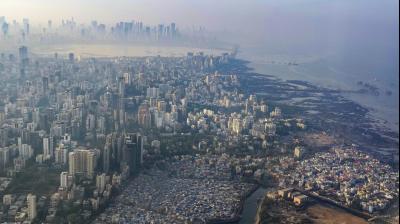‘India should ask for 80Gt of carbon to sustain itself’
India should ask for at least 80GtC (gigatonnes of carbon) for the period beyond 2030 as its long-term claim to the carbon budget, said experts at a discussion held in Mumbai, ahead of the Paris clima
India should ask for at least 80GtC (gigatonnes of carbon) for the period beyond 2030 as its long-term claim to the carbon budget, said experts at a discussion held in Mumbai, ahead of the Paris climate change conference on November 30.
Heads of about 137 countries will meet in Paris to strike a long-term deal to bring down global greenhouse gas emissions and to discuss how much of the carbon budget or carbon cake each economy can claim for itself.
According to scientists, only if the world limits to emitting approximately 1,136GtC till 2100, can the global rise in temperature be restricted to an increase of two degrees celsius.
Of this, 667GtC has already been emitted and only 469GtC is left for countries to share till 2100. It is this distribution of carbon space that most countries will be vying for during the Paris conference.
Speaking about India’s share in the carbon space, Tejal Kantikar from Tata Institute of Social Sciences (TISS) said, “According to India’s per capita emissions, it is entitled to 156Gt of the remaining carbon space. However, this number will appear to be huge when put across the table at Paris as the world has only 469GtC available. But if there is an equitable distribution of the carbon budget considering what developed countries have already used up in the past and what developing countries need for their progress, we should claim at least 70-80GtC now.”
Ms Kantikar also said that in the absence of an agreement there is no option but to unilaterally declare a claim on the carbon budget.
With the rate at which developed countries are currently using up the carbon space, very little would be left beyond 2030 and if India does not claim its share, the space may be lost forever, Ms Kantikar added.
Speaking about the issue, senior environmental journalist Darryl D’Monte said, “Claiming 80GtC would be the bare minimum that India requires to sustain its basic level of lifestyle, without excessive use of energy. It would be a legitimate demand for its share of the carbon space.”
Rising Temperatures Why is it crucial to limit rise in global temperature to two degrees Celsius Two degrees above pre-industrial temperature is the internationally-agreed target for limiting global warming beyond which climate change risks become unacceptably high.
Rising temperatures also have consequences on food and water security, infrastructure, ecosystems, health and the risk of conflict, says the Intergovernmental Panel on Climate Change (IPCC). The higher the temperature, greater the risk the climate change effect will be serious and damaging, including intense floods and prolonged droughts.

















